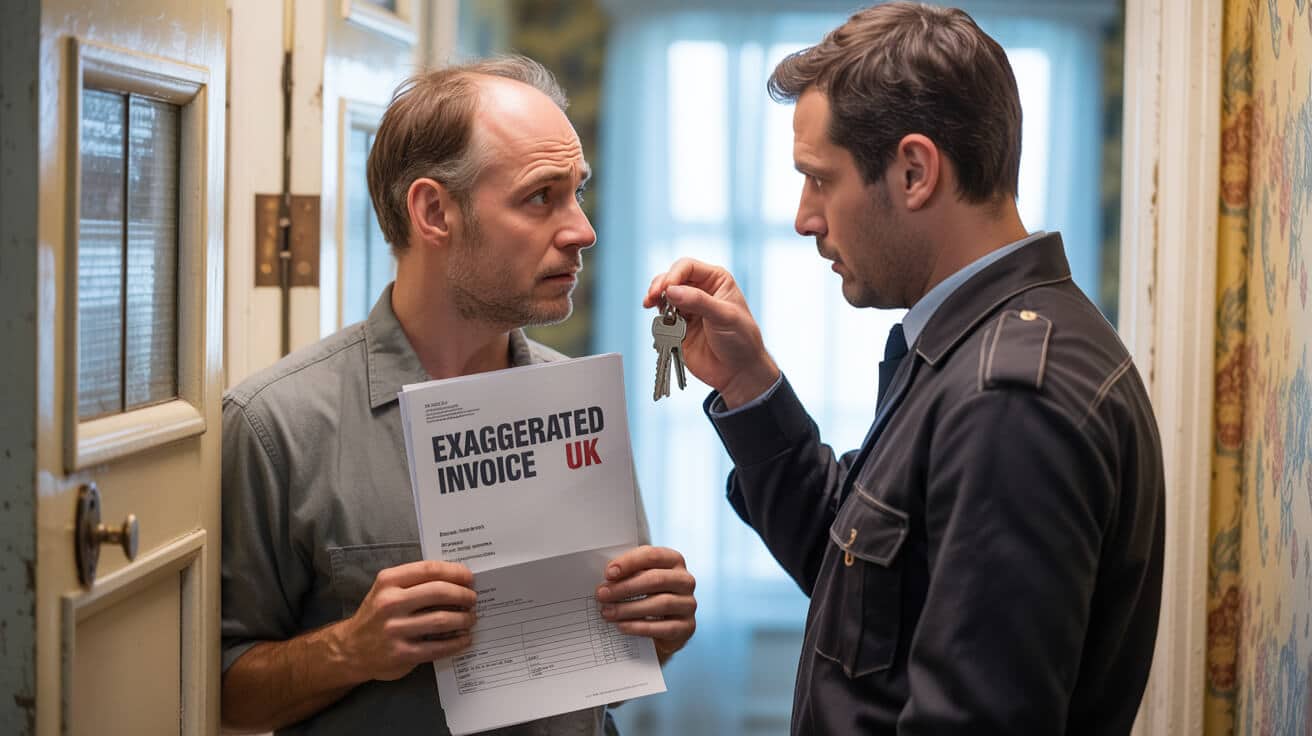 How To Resolve Tenant Complaints And Protect Your Reputation
How To Resolve Tenant Complaints And Protect Your Reputation

Why Does Resolving Tenant Complaints Matter for Reputation—And What Sets Leaders Apart?
Tenant complaints are not a nuisance to be swept under the rug. They are the public scoreboard for your reputation—one ignored leak or unanswered call and suddenly your name is all over Google, WhatsApp groups, and trustpilot. Every unresolved issue quietly saps your credibility, threatening your occupancy but more dangerously, eating away at your long-term earning power. This isn’t about ticking boxes; it’s about inspiring confidence even when things don’t go right. Every property company says they care when the contract is signed. Only a handful prove it when there’s water on the floor or heating stuck on the blink.
“A negative experience whispered today can echo across reviews, forums, and future lets if left unresolved.”
In 2024, 90% of negative property reviews tie back to delayed communication or unfinished repairs (Fourandhalf, 2024). You can fix ten things right, but one “ghosted” repair complaint will be what gets screenshotted and reposted. Tenants have the microphone: their praise—or their warnings—become permanent record on review sites and digital letting groups.
Top operators don’t do more work—they do the right work faster:
- Every complaint—big or small—is logged and checked off before it grows fangs.
- Their response times are measured in hours, not days (and tenants know when to expect a callback).
- They turn every action into evidence, creating a visible, drama-free environment where fairness and transparency replace defensiveness.
Slip up and tenants tell the whole city. Respond like a leader and they might just defend you when the next “XYZ landlord horror storey” comes up.
How Should You Spot, Log, and Assess Tenant Complaints for Early Intervention?

Most complaint crises started as a minor “can you check this?” email that no one logged. Every unlogged complaint is a potential Reputation Time Bomb. Today’s top operators treat even the “small stuff” as high-leverage moments—to catch brewing problems, pattern-match systemic issues, and demonstrate genuine care.
Logging Is Your Real Insurance
- Instant Entry: The moment a complaint comes in (phone, email, app, passing mention in the common area), it’s logged—no more paper scraps or “I’ll remember later.”
- Pattern Tracking: Over time, you’ll spot high-frequency zones: the same tap leaking every three months; repeated noise from unit 5B. These patterns reveal contractor issues, material failings, or even poor previous repairs—and let you act before tenants lose faith.
- Lower Escalation Risk: “Properties with logged complaint systems see fewer disputes escalated to the ombudsman” (Housing Ombudsman, 2024). When you show up with logs and pictures, it’s harder for a simple mistake to snowball into a crisis.
Assessing for Effective Action
Not every complaint is fire-and-brimstone, but every single one is a chance to win trust—if handled quickly and calmly.
- Urgency Sorting: Health, safety, and legal gaps leap to the top, but don’t neglect “small” issues—chronic damp, recurring boiler faults, or slow fixes to communal lighting. These wear down trust as much as any visible hazard.
- Digging Deeper: That crack might just be paint—but is it the first sign of subsidence? Ask for photos, arrange a quick call, and don’t accept a superficial fix when there could be more lurking below.
Record your answers, record your actions. In property, a paper trail beats “best intentions” every time.
“The difference between risk management and firefighting is the speed and method of your complaint intake.”
What Does High-Standard Response Look Like—And How Fast Is Fast Enough?

How quickly you reply is what tenants remember—not just whether you eventually fixed it. Inconsistent or sluggish responses are the main reason tenants decide “never again” with a given agency or landlord. They talk, they review, and your next applicant reads the receipts.
Response Within 48 Hours Is Table Stakes
- Immediate Acknowledgement: Send confirmation immediately—“We’ve received your report and are on it.” Even if you don’t have an instant fix, this shows empathy and respect.
- Transparent Process: Time-stamped updates, visible repair notes, and expected timeframes eliminate the “are they even listening?” spiral.
- True Expectation Management: Don’t over-promise—set realistic ETAs, explain supplier delays, and always provide the next checkpoint (“We’ll update you by Friday, even if the part isn’t in yet”).
- Backed by Data: “Prompt digital response logs correlate with improved tenant satisfaction and reduced regulatory scrutiny” (Fourandhalf, 2024).
Consistent Updates = Lower Anxiety
Even a “waiting for engineer” update is infinitely better than silence. Tenants start to distrust or feel adrift when they have to chase you for answers.
“Repair speed matters, but updates matter more—assurance diffuses frustration faster than any fix.”
You’ll never get complaints to zero. But you can absolutely own the playbook on how those complaints are managed—and that’s what earns loyalty, referrals, and five-star reviews.
How Does Documentation Protect Both You and Your Tenants?

Some managers still gamble: they keep things informal, rely on memory, hope for the best. Stop. Documentation isn’t red tape—it’s what keeps both you and the tenant safe when things get sticky. When conflicts go legal, the winner is rarely the one with the better storey; it’s the one with the clearer paperwork.
Make Every Step Evidence
- End-to-End Logging: Notes, time-stamped photos, screenshot copies of portal chats or texts—build a complete file for every complaint. This isn’t paranoia; it’s professionalism.
- Photo Logs: Nothing shuts down a “they never fixed it” escalation faster than a before-and-after photo of your technician working on the issue (Pettyson, 2024).
- Cloud First, Not Drawer Lost: Store your evidence in a central, cloud-accessible location. “Don’t say ‘we lost the file’ in 2024.” If requested by a tenant, auditor, or insurer, you want to respond in minutes—not spend hours rifling through files.
- Value That Shows: A transparent record-keeping system reassures tenants and letting partners that you run a tight ship—raising your standing, not just your defence.
A robust audit trail shapes your reputation. In disputes, it’s what tips the scales in your favour.
“When evidence is clear, blame rarely sticks—and nearly all reviews, audits, or legal claims favour the side with cleaner records.”
How Do Legal Compliance and Up-to-Date Records Prevent Escalation?

It’s easy to coast on “compliant enough”—until a tenant, agent, or inspector asks to see a current certificate. No amount of goodwill can buy you time if your safety record is out of date. Today, compliance is the invisible shield beneath your reputation, your legal footing, and your insurance coverage.
Proactive = Professional (and Saner)
- Auto-Reminders: Set up digital reminders for everything—gas safety, EICRs, fire doors, and more. Missing a date isn’t just a technicality; it’s how fines, voided insurance, and database flags start piling up.
- Central, Secure Storage: Upload all records to a GDPR-compliant, instantly retrievable service. Paper is a risk; lost docs mean lost credibility.
- Instant Recall: There’s real power in quickly producing a maintenance log, compliance check, or certificate when challenged. Delays arouse suspicion; speed builds trust.
- Real-World Stakes: “Missing or expired certificates typically result in fines starting at £600, with higher costs for disputes or insurance claim failures” (Crystal Law, 2024).
Compliance Isn’t Seen—Until It’s Demanded
Many tenants and agents assume things are in order, until something goes wrong. When it does, only systems—not stories—carry you through.
“Front-line compliance is silent until you’re checked—then it’s the loudest measure of professionalism you have.”
Timely compliance and open records aren’t marketing extras. They are your the reason you’re still in business after the first inspection or claim.
What Communication Style Calms Tense Situations and Wins Tenant Loyalty?

Problems are inevitable. Drama is optional. How you talk to tenants facing stress or frustration is the biggest separator in this business. You win trust (and positive reviews) not by dazzling with technical jargon, but by being factual, calm, and solution-driven—even when you’re under fire.
Solution-First, Zero-Blame Communication
- Facts and Deadlines: State exactly what has happened, what comes next, and a timeline. “We are waiting for a replacement valve, expected Thursday.”
- Written Confirmation: After any tense phone call or site visit, summarise follow-up actions in writing—portal, SMS, or email.
- Emotionally Neutral: Even when tenants are angry or anxious, avoid taking it personally—resist temptation to blame or mirror their frustration.
- Documenting Dialogue: “Consistent, documented communication rapidly reduces escalations and fosters positive reviews” (Number Analytics, 2024).
Resetting the Temperature
When tenants are upset, specifics calm nerves. “We’re getting a specialist in tomorrow morning” is better than “We’re aware of the issue.” Don’t match raised voices with defensiveness—instead, keep returning to details, next steps, and expected outcomes.
“Tenants remember who gave them straight answers when they needed them—be the firm that sets that standard.”
Clients don’t reward perfection—they reward the operators who treat their stress with respect and transparency.
How Can Proactive Updates and Group Communication Prevent Confusion?

The fastest path to tenant complaints isn’t always a faulty heating pump or leaking roof—it’s silence. Uncertainty and confusion fill the void where updates should be. When tenants swap stories in building WhatsApp groups or scroll stale portal messages, every “has anyone heard anything?” is a credibility leak for your business.
Lead With Clarity—Not Rumours
- Quick Status Alerts: Don’t make tenants chase you for updates. Proactively notify everyone affected—not just the one who raised the ticket—if works will cause delays or shared-area disruption.
- Group Communication Tools: Use tenant portals, SMS broadcasts, or noticeboards to deliver consistent updates. Rumours fade when your central log is visible.
- Unified Information = Smoother Repairs: “Properties with centralised status logs experience smoother repairs and less tenant churn” (Pettyson, 2024).
The Surprise Complaint (and How to Prevent It)
Tenants who know what is happening—good or bad news—are far less likely to turn up the heat or escalate.
- Expectation Setting: Outlining steps (from inspection to estimated completion) keeps everyone in the loop, fosters goodwill, and lowers the risk of repeat complaints.
“Your best customer isn’t just a satisfied one—it’s the well-informed one who never needed to call twice.”
If you want to be seen as landlord or agent of choice, broadcast updates like an airline—often, uniformly, and before you’re asked.
When and How Should You Escalate—and Protect Against Legal Risks?

Some problems are too risky (or regulated) to solve solo. Escalation isn’t failure— it’s proof you understand your limits, care about safety, and value legal defensibility. The most reputable operators show decisiveness: moving fast when lives, legal liability, or compliance hang in the balance.
The Escalation Playbook
- Threats to Health or Safety: Gas leaks, sparking electrics, or any sign of exposure demand immediate escalation and regulatory reporting.
- Legal Non-Compliance: Any lapsed safety cert, defective fire door, or unresolved hazard is a legal risk—flag and refer up immediately.
- Chronic Unsolved Problems: If your toolbox or team can’t fix it after 2-3 tries, bring in a specialist or external professional.
- Documentation as Shield: Log all details (who, what, when), communicate up your chain, and request written handoff confirmation.
- External Authority Referrals: For disputes involving enforcement, alert Housing Ombudsman, local authority, or HSE immediately—failure to do so can backfire in court or with the regulator.
- Bulletproof Accountability: “Civil penalties start at £600, and chronic failures can escalate to prosecution or rent repayment orders” (Crystal Law, 2024).
Escalation is about owning your stewardship—protecting tenants, colleagues, and asset owners from long-tail damage that always costs more when ignored.
“Early, documented escalation turns potential disasters into proof points for your integrity.”
Take the Next Step: Protect Your Reputation with All Services 4U
Your reputation isn’t forged when everything runs smoothly—it’s shaped when complaints test your systems and your resolve. Every handled complaint is public proof of your commitment; every ignored one, a silent warning to prospective tenants or peers. The firms known for rapid response, ironclad compliance, and rock-solid documentation don’t just survive—they grow through referrals and word-of-mouth.
Shield your lettings, command trust, and raise the bar for your properties—connect with All Services 4U. Get rapid-response repairs, digital audit trails, and certified compliance that top UK portfolio owners trust. Give your tenants the experience that inspires loyalty—and earn the reputation you actually want.
Frequently Asked Questions
Why do delayed responses to tenant complaints put your property reputation and revenue at risk?
Delaying response to tenant complaints undermines trust and exposes property owners and managers to regulatory penalties, financial loss, and negative public feedback. Every ignored report—from a leaky pipe to faulty heating—signals indifference and can snowball into a formal dispute or online backlash. The English Housing Survey highlights that 87% of tenants weigh responsiveness as a top reason to renew their lease or speak positively online (DLUHC 2023). As digital reviews unlock transparency, a single overlooked complaint can reduce occupancy rates, slow down new lets, and trigger council scrutiny that endangers your licence. Rapidly logged and openly tracked cases show tenants and auditors alike that your brand treats each issue as urgent—separating average landlords from those tenants trust.
How do simple communication missteps damage your business?
- Skipping the initial message or letting repairs drift off the radar makes tenants feel abandoned and is often cited in Ombudsman case evidence.
- Not providing reference numbers or expected timeframes can leave you exposed under “right to redress” legislation.
- Treating smaller fixes as distractions, instead of opportunities to build goodwill, allows tension to build and feeds formal complaints.
Invisible neglect is loud in today’s world—one quiet tenant today is a public complaint tomorrow.
How does a clear and immediate acknowledgment of tenant issues turn complaints into opportunities?
Acknowledging every tenant complaint within 24 hours—both verbally and in writing—demonstrates professionalism and builds goodwill, even before a fix is delivered. The 2024 Housing Ombudsman Guidance found that complaint volumes nearly double when firms lack prompt, documented acknowledgment systems. Using digital tools for receipt confirmations (by SMS or app) keeps your tenants informed, captures a vital compliance record, and gives you room to triage the repair safely. By setting realistic expectations for the next update, you transform anxiety into clarity, reducing escalation risk and cementing loyalty.
What actionable methods reinforce tenant confidence?
- Automate response messages and tie them to work-order systems for immediate, audit-ready proof.
- Schedule a specific time for the next update—even if the problem isn’t yet fixed—so tenants know they’re not forgotten.
- Keep every interaction time-stamped, logged, and accessible to both teams and tenants.
Trust builds when every voice is heard, not when every problem is fixed overnight.
Which documentation practices most reliably win property disputes?
Meticulous documentation is your strongest defence in any property dispute or audit. Evidence—photos, call logs, qualified contractor receipts—speaks louder than good intentions, especially if a tenant escalates a case to an ombudsman or local authority. According to the UK Property Redress Scheme, over 80% of disputes are resolved in favour of landlords who present organised, time-stamped case files. Keeping every repair, message, and update in a centralised and accessible portal ensures your compliance backbone remains unbreakable.
What steps make your records genuinely regulation-ready?
- Use cloud-based folders or case management software that stores all communications, receipts, and images securely.
- Build a “repair pack” for every issue: confirmation, before-and-after visuals, technician credentials, and reference numbers.
- Share relevant documents with tenants if requested, reinforcing transparency and trust.
Good faith is invisible; concrete evidence is what wins in an audit or hearing.
What legal timeframes and escalation rules govern complaint handling in UK property management?
Under the 2024 Housing Ombudsman Complaint Handling Code, you’re required to acknowledge complaints within five working days at the latest—but most reputable agencies reply in under 48 hours for non-urgent cases, and immediately for safety risks. Health-critical issues (gas, electrics, persistent leaks) demand fast-track escalation, frequently necessitating contact with Environmental Health or local councils outside of business hours. Breaches invite fines upwards of £600, rent repayment orders, or even loss of licencing. When internal remedies fail, tenants are empowered to seek outside review via designated persons or the Ombudsman, so keeping all steps documented underpins your defence and reputation.
How do you know when external escalation is required?
- Any risk to life or significant property damage (gas, electrical, flooding, fire).
- Unanswered complaints after multiple tenant attempts.
- Recurrence of flagged issues in recent audits or within online review platforms.
What typical errors or habits expose landlords and agents to formal complaints and reputational loss?
Overlooking routine complaints, failing to communicate realistic timelines, and mishandling repair handoffs are the leading causes behind formal disputes and public criticism. The 2024 Propertymark survey found that more than 60% of tenant escalations trace back to “missing updates” or “informal” status promises. Applying temporary fixes to recurring problems (damp, leaks, poorly ventilated rooms), using language like “not our responsibility,” or selecting unvetted contractors sharply increases exposure to both legal action and online reputation damage.
Which measures make a visible difference for property teams and landlords?
- Set automated reminders for repair follow-ups, and require name-and-time stamps for each handover or status update.
- Record all closure steps, including images and tenant sign-off, to document a complete and auditable process.
- Insist on up-to-date certification for any contractor—inspectors and regulators increasingly demand instant proof.
Unanswered questions become headlines, but consistent care makes you the agency landlords and tenants recommend.
What checklists and digital systems distinguish leaders in tenant complaint resolution?
The strongest property management teams employ digital logging forms, scripted communication pathways, and closure checklists—often refined by partners like All Services 4U—to ensure no complaint slips through the cracks. Complaint intake forms collect key details (names, contacts, evidence images), and automated routing assigns each case to the right lead. Every stage is time-stamped, and tenants are updated at key milestones. Integration with digital platforms provides real-time tracking for all parties, compressing admin cycles and boosting transparency.
Which tools and habits consistently improve outcomes?
- Preloaded templates and checklists from providers like All Services 4U keep standards consistent and defensible.
- Centralised digital portals allow tenants and landlords to follow case progress and access records, reducing misunderstandings.
- Vetting rubrics and contractor credential checks prevent compliance lapses before they become public headaches.
- Regular training and scheduled audits catch process drift before it turns into reputation loss.
Encouraging staff to embrace these systems and habits not only prevents escalation but positions your property or agency as a benchmark for professionalism—attracting and retaining quality tenants, while keeping you audit- and reputation-proof, whatever arises.
A future-proof reputation is built on today’s habits—systematic logging, open updates, and a readiness to prove your service at a moment’s notice.



